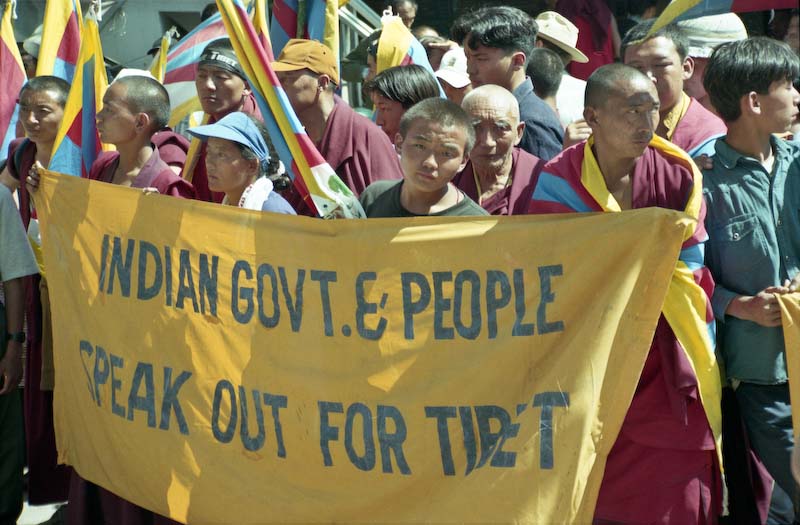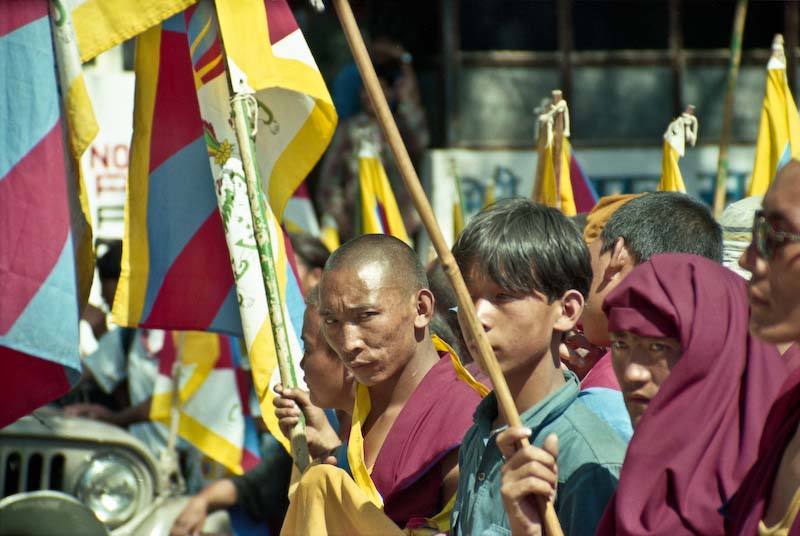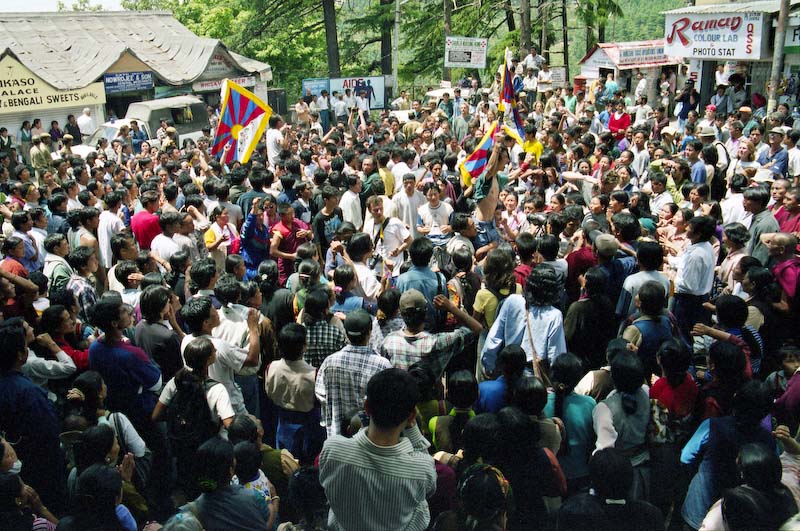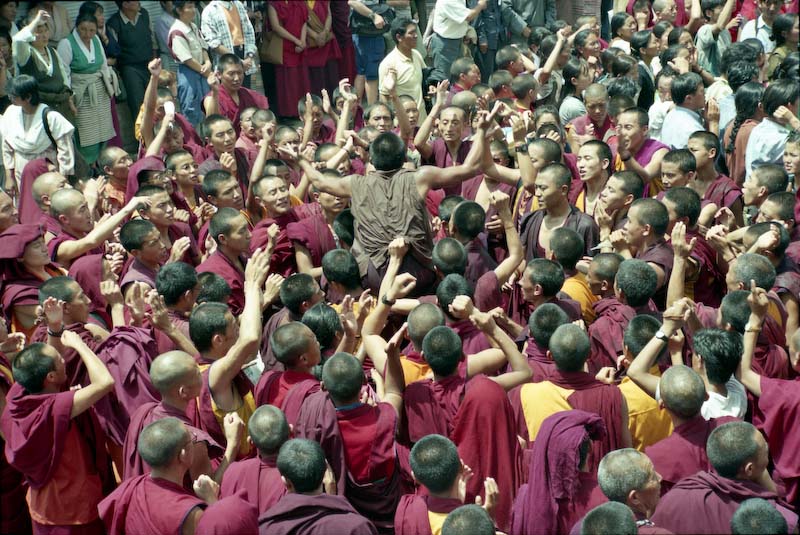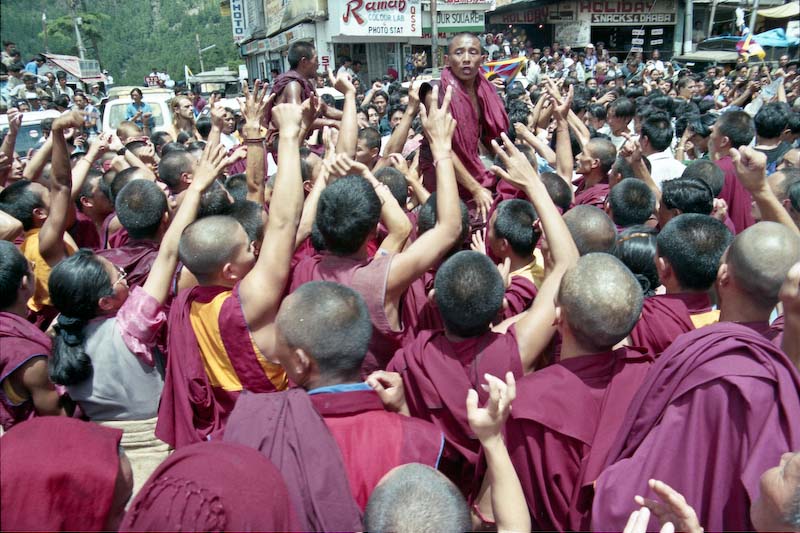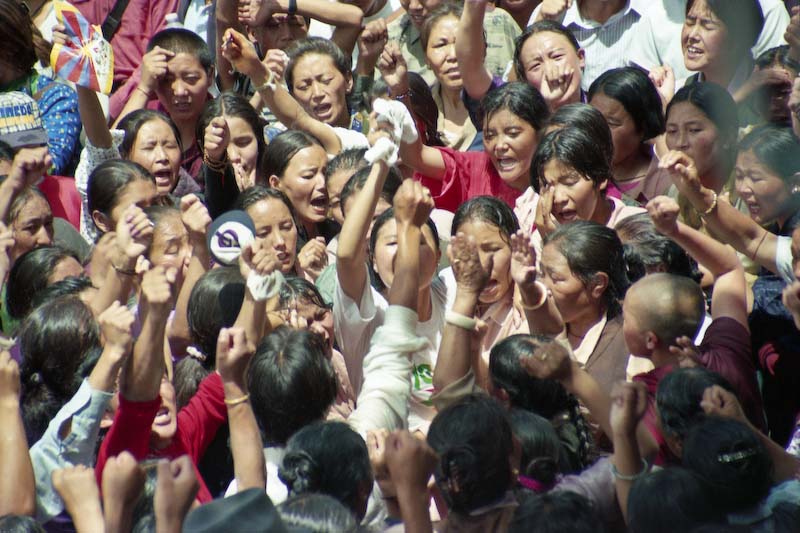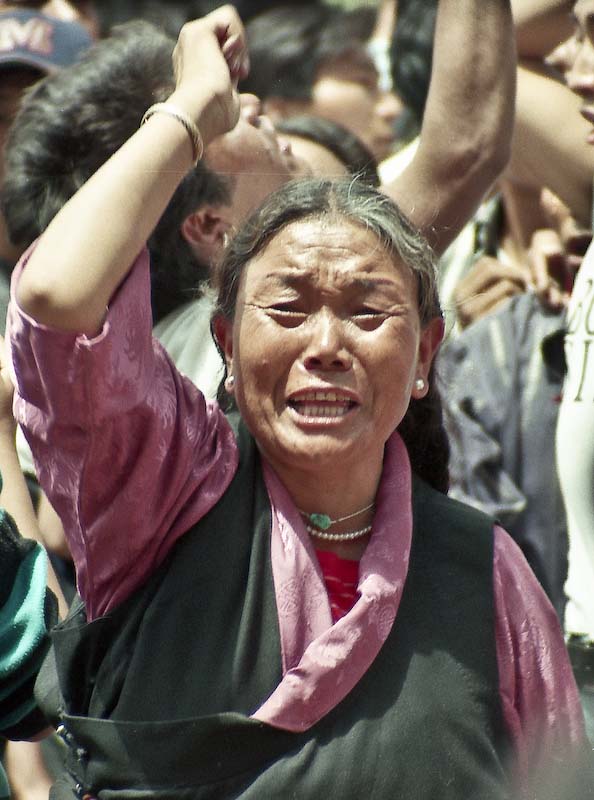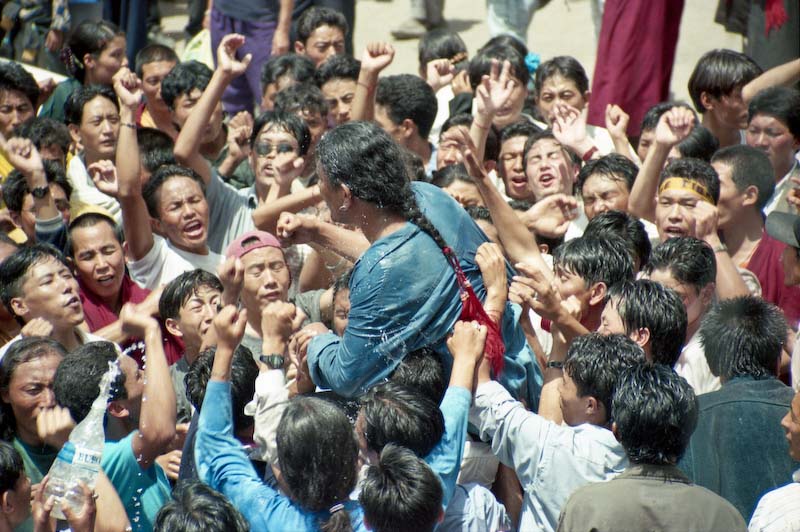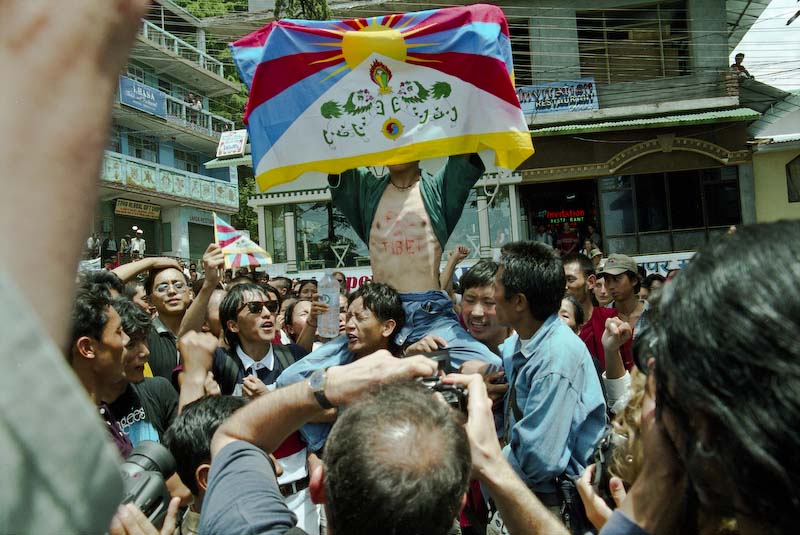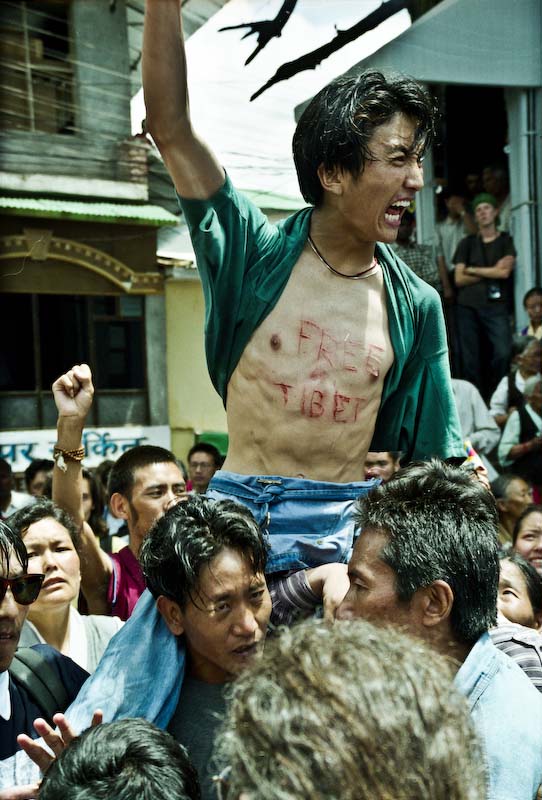The chant rings as clear in my thoughts now, as on the day of this emotionally powerful event that took place in McLeod Ganj, Northern India, ten years ago.
Some days prior, sixty year old Tibetan exile Thupten Ngodup had doused himself with fuel and set himself alight near Jantar Mantar refugee camp, New Delhi. His desperate act took place as Tibetan hunger strikers were forcefully taken to hospital, in a raid by Indian police and paramilitary. They were the last three of six “unto death” hunger strikers who had begun their 49th day of fasting in protest at China’s occupation of Tibet and the United Nations inaction to resume debate on the issue.
The flames were extinguished by nearby Tibetans and Ngodup was rushed to hospital where Tibet’s spiritual leader, the Dalai Lama, visited him. Reports say Ngodup tried to sit up in reverence but was gently pushed back. The Dalai Lama told Ngodup he should not hold any hatred toward the Chinese. Thupten Ngodup later died in hospital as a result of burns sustained to almost his entire body.
On May 1, 1998, Thupten Ngodup’s body was cremated at Dharamsala, north India, the Dalai Lama’s home in exile.
Following the funeral, a crowd gathered in the town centre of nearby McLeod Ganj. Mostly Tibetan; men, women, children, many Buddhist monks. A protest began. The scene was heart wrenching. Many were in tears and anguish was written on faces throughout. As the demonstration progressed a number of protestors, overcome with emotion, lost consciousness and were carried away. Then a young man took lead, riding on the shoulders of his compatriots he screamed out the protest chant. He had “Free Tibet” carved into his chest. My hope is that this series of photographs, taken on the day of Thupten Ngodup’s funeral, can portray a part of the immense hurt and loss suffered by the Tibetan people.
